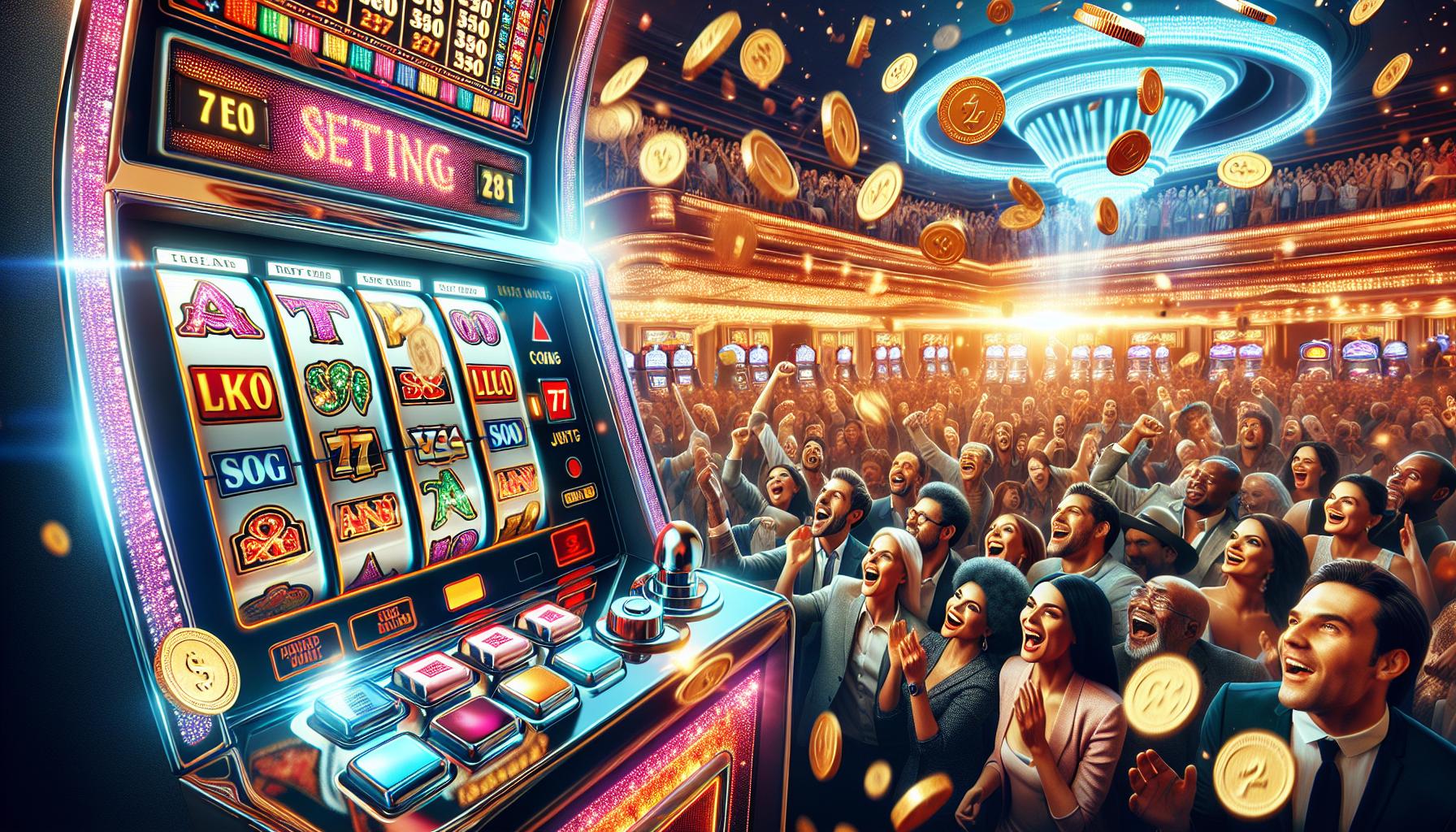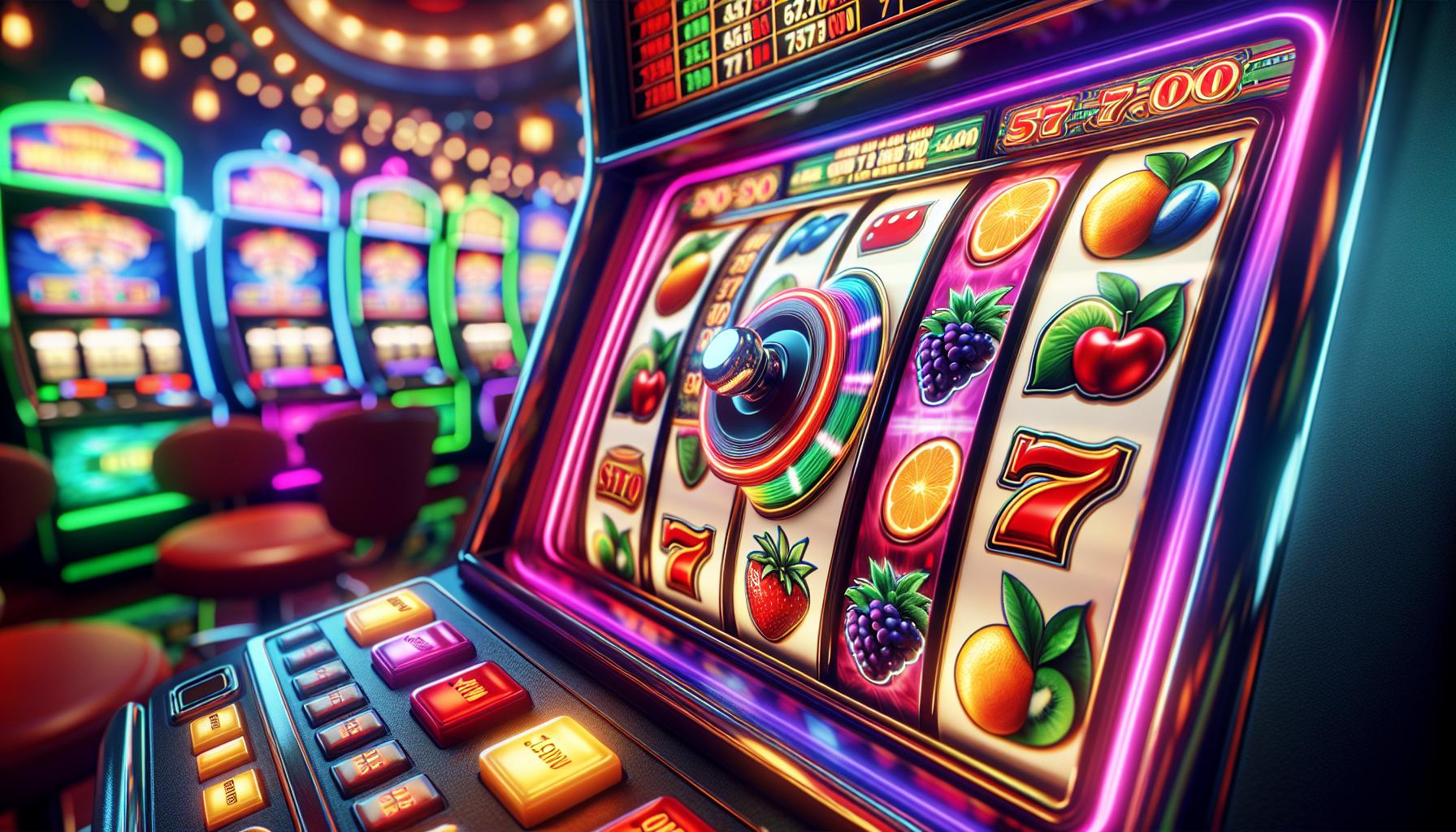Slot machines have captivated gamblers for decades, drawing them in with the promise of big wins and thrilling gameplay. But have you ever wondered what keeps players coming back for more? The secret lies in the reinforcement schedules that these machines employ, which play a crucial role in shaping gambling behavior.
Understanding these schedules can reveal why some players feel compelled to keep spinning the reels even after a losing streak. It’s not just about luck; it’s about how rewards are structured. In this article, I’ll dive into the fascinating world of reinforcement schedules and explore how they influence the way slot machines reward gamblers with money. Whether you’re a casual player or a seasoned gambler, grasping these concepts can enhance your gaming experience and help you make more informed choices.
Key Takeaways
- Slot machines utilize reinforcement schedules to enhance player engagement and influence gambling behavior, with variable-ratio schedules creating high excitement levels.
- Understanding the different types of slot machines—classic, video, progressive, and branded—can help players make informed choices tailored to their preferences.
- Fixed-ratio schedules reward players after a specific number of spins, while variable-ratio schedules offer unpredictable payouts, leading to sustained play and emotional investment.
- The psychological anticipation created by these reinforcement schedules enhances the gambling experience, often leading players to invest more time and money.
- Recognizing how rewards are structured can empower players to approach slot machines with greater mindfulness and strategize their gambling behavior effectively.
Understanding Slot Machines
Slot machines operate using complex mechanisms designed to attract and retain players. The reinforcement schedules play a key role in shaping gambling behaviors, creating an environment where players often chase rewards despite losses.
The Mechanics of Slot Machines
Slot machines utilize random number generators (RNGs) to determine outcomes. RNGs ensure each spin is independent, providing unpredictability. Reels typically feature various symbols, and combinations of these symbols trigger payouts. The more identical symbols a player lands, the higher the reward. Most machines display a visual representation of potential pay lines, highlighting how combinations lead to winnings.
The return-to-player (RTP) percentage indicates the average payout over time. For instance, a machine with a 95% RTP returns $95 for every $100 wagered in the long run. Additionally, machines may offer progressive jackpots, where a small portion of each bet contributes to a larger, accumulative prize.
Types of Slot Machines
Slot machines come in multiple varieties, catering to diverse player preferences. The main types include:
- Classic Slots: Featuring three reels and simple gameplay, these machines appeal to traditional players. They usually offer fewer pay lines and straightforward payouts.
- Video Slots: Incorporating advanced graphics and animations, video slots often include five or more reels. They provide more paylines and bonus features, enhancing player engagement.
- Progressive Slots: These machines contribute to a growing jackpot, which increases with each bet placed. While harder to hit, the potential rewards entice many players.
- Branded Slots: Based on popular movies or TV shows, branded slots incorporate familiar themes and characters. They often offer unique features and bonus rounds tied to the source material.
Understanding these mechanics and types enhances my ability to make informed choices while playing slot machines. Each type presents unique experiences and reward structures, which ultimately influence my gambling strategies.
Reinforcement Schedules in Gambling


Reinforcement schedules play a crucial role in influencing gambling behavior, particularly in the context of slot machines. These schedules determine how and when rewards are delivered, shaping players’ experiences and motivations.
Definition of Reinforcement Schedules
Reinforcement schedules refer to the systematic delivery of rewards in response to specific behaviors. In gambling, these schedules dictate when and how often players receive payouts, affecting their engagement levels. For instance, continuous reinforcement delivers rewards after every correct response, while partial reinforcement provides rewards only sometimes. This structure impacts players’ persistence and can lead to extended gaming sessions.
- Fixed-Ratio Schedule: Rewards occur after a specific number of plays, encouraging consistent engagement. For example, a player might receive a payout after every 10 spins.
- Variable-Ratio Schedule: Rewards follow an unpredictable pattern, often resulting in the highest level of engagement. Slot machines commonly utilize this schedule, creating excitement with random jackpots.
- Fixed-Interval Schedule: Rewards are provided after a set amount of time, leading to periods of inactivity. This approach is less effective for slot machines but may apply in certain promotional scenarios.
- Variable-Interval Schedule: Rewards are given at irregular time intervals, maintaining player interest over time. This method can contribute to a player’s anticipation and excitement.
Understanding these reinforcement schedules helps inform players about the underlying strategies of slot machines, allowing for more intentional and informed gaming choices.
How Slot Machines Reward Gamblers


Slot machines primarily utilize reinforcement schedules to reward gamblers, significantly affecting their gaming behavior. Understanding these reward structures enhances my insights into how and why players engage with these machines.
The Role of Variable Ratio Schedule
Variable ratio schedules reward gamblers after an unpredictable number of plays, which creates excitement and drives continuous engagement. These schedules generate a consistent response rate, keeping players hopeful with each spin. For example, a player might win after three spins, then five, and again after two, but the unpredictability keeps them returning. Research indicates that variable ratio reinforcement leads to high levels of persistence, as players continue hoping for the next big win without a clear timeline.
Fixed Ratio vs. Variable Ratio Schedules
Fixed ratio schedules provide rewards after a specific number of plays, encouraging steady play patterns. For instance, in a fixed ratio schedule, a player might receive a payout after every tenth spin, fostering a sense of structure. In contrast, variable ratio schedules, as mentioned earlier, create a more exhilarating experience by rewarding wins at unpredictable intervals. Studies show that variable ratio schedules produce more significant emotional responses compared to fixed ratios, which can lead to longer gaming sessions and greater spending. Understanding these differences allows me to appreciate how various reward structures influence my gaming experience and decision-making process.
Psychological Effects of Reinforcement Schedules


Reinforcement schedules significantly influence gambling behavior, shaping the way players interact with slot machines. Understanding these effects reveals how various reward structures can lead to continued engagement, even amidst losses.
The Impact on Gambling Behavior
Reinforcement schedules directly affect gambling behavior by defining when and how often rewards are received. Variable-ratio schedules, prevalent in slot machines, produce a high level of engagement since players cannot predict when their next win will occur. This unpredictability leads to sustained play and emotional investment. Studies indicate that gamblers tend to invest more time and money when rewards are sporadically delivered, fostering a cycle of anticipation and excitement that encourages repeated gameplay.
In contrast, fixed-ratio schedules offer rewards after a set number of plays. Although these schedules promote consistent play, the predictability can lessen the excitement compared to variable ratios. Many players find themselves drawn to the thrill of uncertainty, while others may find fixed ratios comforting due to their structured nature.
The Role of Anticipation in Winning
Anticipation serves as a powerful psychological driver in gambling. The thrill of awaiting a potential win keeps players engaged and invested in the outcome. Variable-ratio schedules amplify this anticipation, as players remain uncertain of when they might strike it lucky. Research shows that this sense of uncertainty can create stronger emotional responses, enhancing the overall gaming experience.
Anticipation also creates a dopamine response in the brain, reinforcing the desire to keep playing. Each time players pull the lever or press a button, they feel a rush of excitement that can overshadow previous losses. This emotional engagement compels players to remain in the game, often leading to longer sessions and greater monetary investment. Understanding the psychology behind anticipation can empower players to recognize their emotional triggers, allowing for more mindful gaming choices.
Conclusion
The intricate relationship between slot machines and reinforcement schedules reveals why so many are drawn to these games. Understanding how variable-ratio schedules create excitement and anticipation can help me and other players navigate the gaming landscape more wisely.
By recognizing the psychological effects of these schedules I can make informed decisions about my gambling habits. This awareness not only enhances my gaming experience but also encourages responsible play. As I continue to explore the world of slot machines I’ll keep these insights in mind to ensure that my time spent playing is both enjoyable and mindful.

